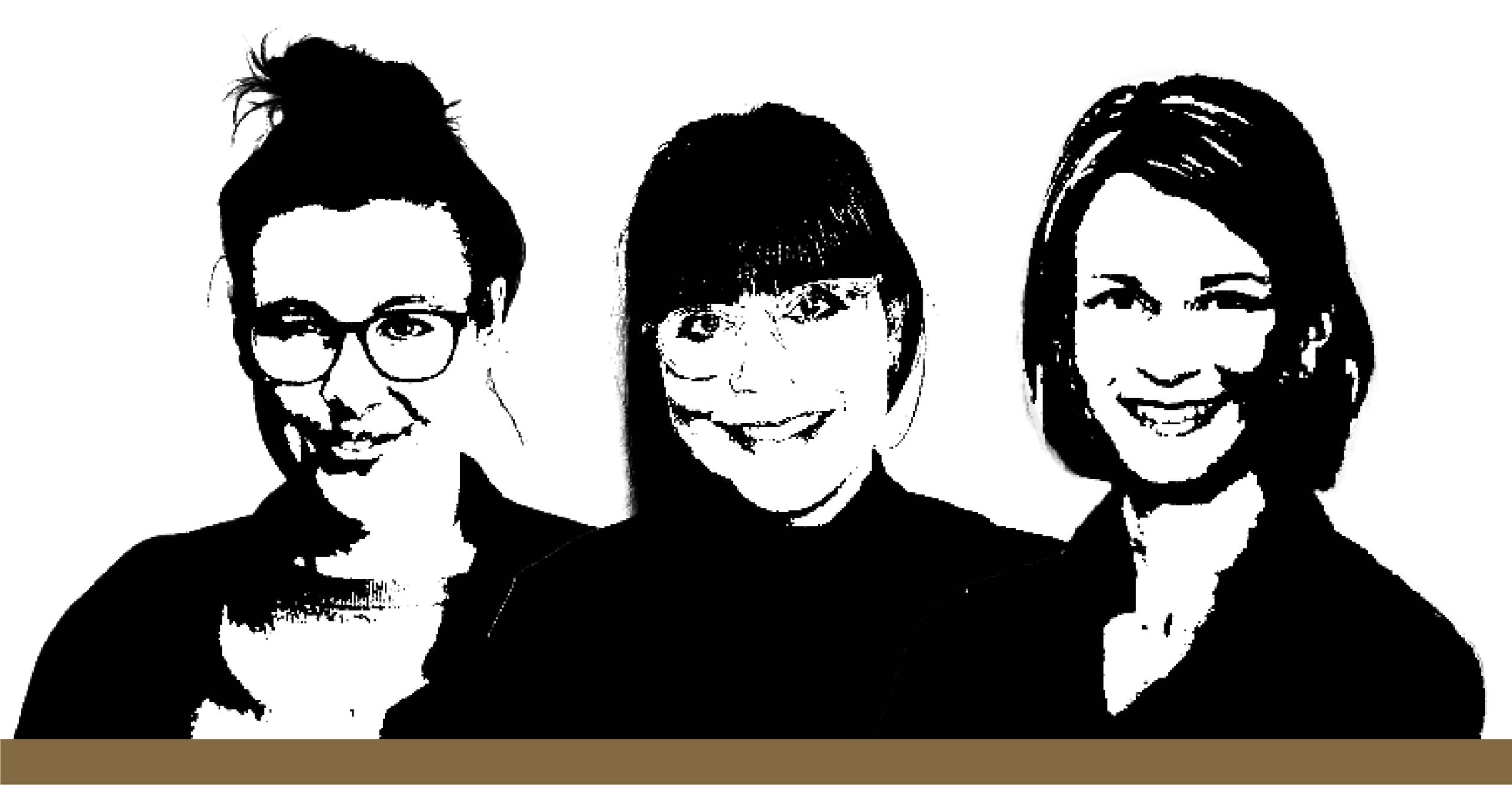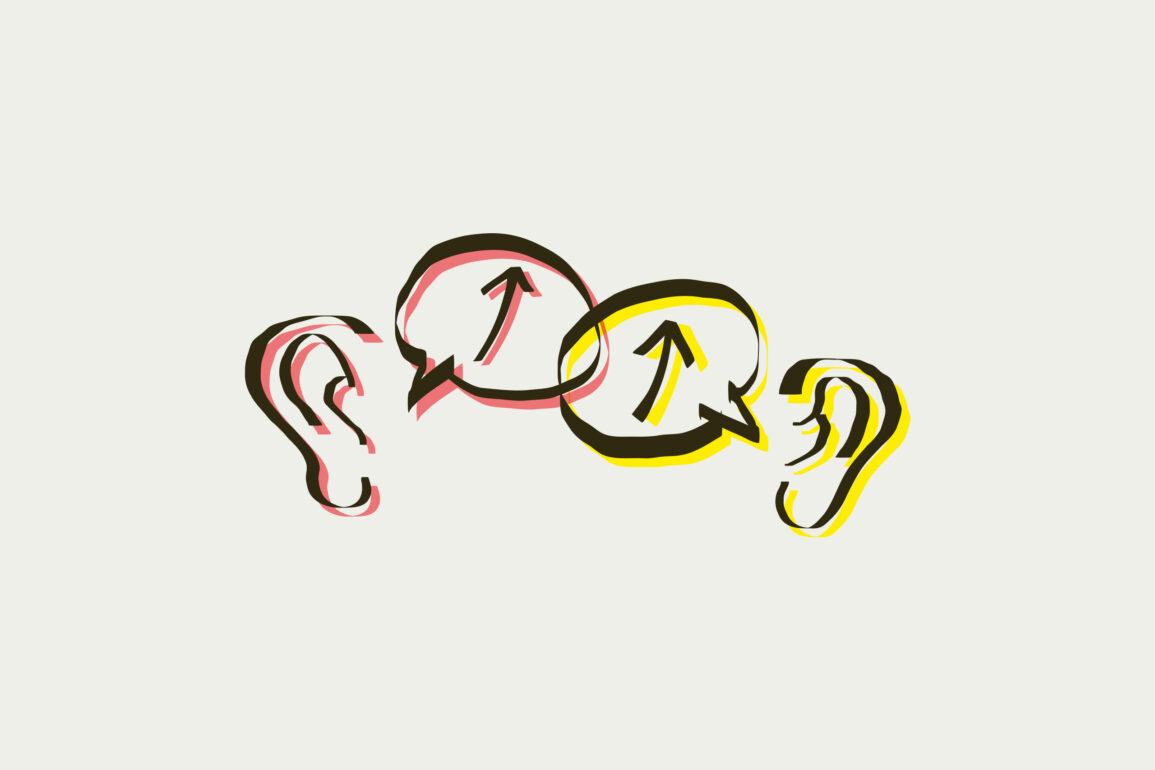Funding is shaped by a power imbalance: one side has resources and expectations, while the other needs support and is under pressure to perform. This is also reflected in how reports are drawn up. Collaborative partnerships are founded on trust and appreciation – and minimal administrative outlay. Foundations can protect these qualities by engaging in direct dialogue throughout the duration of the funding process.
Why oral reporting?
SKKG wants to be a good partner, bolster its collaborations, learn from its projects and save time for those involved. In so doing, it’s responding to the 2019 grantee survey undertaken by CEPS. The foundation has made various decisions off the back of this, including doing away with written project reports and introducing oral reporting. In collaboration with Lea Buck, from the Azurit Foundation, and Michaela Wintrich, from the Unternehmerstiftung für Chancengerechtigkeit, a working paper has been drafted that describes the tool. The document is public and can be viewed online, while funding recipients are familiar with it from the off. Anyone who wishes to do so is welcome to suggest changes and additions: www.oralreporting.info.
Oral reporting about oral reporting
SKKG has been testing out this approach for a year now and has already held 28 discussions. It’s clear that the meetings foster mutual trust and a culture where people aren’t afraid to make mistakes. For this article, we give it a try for ourselves, taking three questions from the working paper for this discussion by members of the SKKG team. You can listen to the entire report between Christine Müller Stalder, SKKG, and Theresa Gehringer, SKKG, via the QR code.
Question 1: how are things, what’s the situation?
Like many institutions, we take spring as the traditional opportunity to look back on the funding we awarded in the past year. With more than 30 funding recipients, we’re using the oral reporting questionnaire almost weekly. Generally, we plan for a 90-minute discussion but we adapt this to the needs of the organisation at hand in each instance. We either hold the meetings on site, at our premises in Winterthur or remotely. Afterwards, we write up the minutes for our interlocutor, drawing on their feedback – saving them lots of time. It also gives us an in-depth sense of the impact our funding is having.
In other words, oral reporting is a tool we use very often, and one we enjoy using, despite the extra work it leads to at our end. The feedback has been wholly positive: there’s surprise that we, as a foundation, are taking so much time and also showing an interest in things that are outside the project receiving funding; there’s enthusiasm that our partners have someone with whom to reflect on, and develop, their project; and there’s gratitude that we’re showing recognition and appreciation for their work.
Info:
We love cultural heritage: the SKKG’s support is aimed at institutions and projects that look at engagement with cultural heritage. When granting funding, a cooperative approach, innovation, the courage to take risks, transparency and effectiveness are important to us. Christine Müller Stalder and Theresa Gehringer are part of the SKKG’s funding team, while Rahel Stauffiger is responsible for processes and evaluation. www.skkg.ch
Question 1: how are things, what’s the situation?
Like many institutions, we take spring as the traditional opportunity to look back on the funding we awarded in the past year. With more than 30 funding recipients, we’re using the oral reporting questionnaire almost weekly. Generally, we plan for a 90-minute discussion but we adapt this to the needs of the organisation at hand in each instance. We either hold the meetings on site, at our premises in Winterthur or remotely. Afterwards, we write up the minutes for our interlocutor, drawing on their feedback – saving them lots of time. It also gives us an in-depth sense of the impact our funding is having.
In other words, oral reporting is a tool we use very often, and one we enjoy using, despite the extra work it leads to at our end. The feedback has been wholly positive: there’s surprise that we, as a foundation, are taking so much time and also showing an interest in things that are outside the project receiving funding; there’s enthusiasm that our partners have someone with whom to reflect on, and develop, their project; and there’s gratitude that we’re showing recognition and appreciation for their work.
Question 2: what have you been able to achieve – yesterday, today and tomorrow?
At this point, we’re normally interested in the outputs and outcomes attained. For us, we can use oral reporting to forge a closer, trusting relationship with museums and hear about their everyday opportunities and challenges at the internal or strategic level. We see this as the magic of a conversation. It helps us in two respects: it enables us to use our funding in a more targeted, more effective way, while our close connection also allows us to provide expertise to support this. We guide the focus of the discussion towards the things that our funding facilitates and enables, not towards the things that people think we, as the entity providing the money, want to hear.
Question 3: if we could wave a magic wand, what would really help you?
…our favourite question! The most frequent answer is ‘more money’, but people actually come up with totally different ideas once they’ve had a chance to think. We’re the same when it comes to oral reporting. It would benefit the method if more institutions used it. Why not use it collaboratively? This would free up the recipient’s resources that are currently tied up in creating lots of separate reports. Plus, oral reporting helps people look at new, complex issues from different perspectives. We’d love to share our wealth of experience with the community and refine the oral reporting format further.

About the persons:
Christine Müller, Rahel Stauffiger and Theresa Gehringer are employees of the SKKG. They deal with participation in cultural heritage, with Rahel Stauffiger as head dealing in depth with processes and Christine Müller and Theresa Gehringer helping to shape funding cooperation. Together with the grantees, they discuss new approaches.
Resources:
Listen to the discussion in full and view the questionnaire www.oralreporting.info
Collaborate on the oral reporting working paper:


